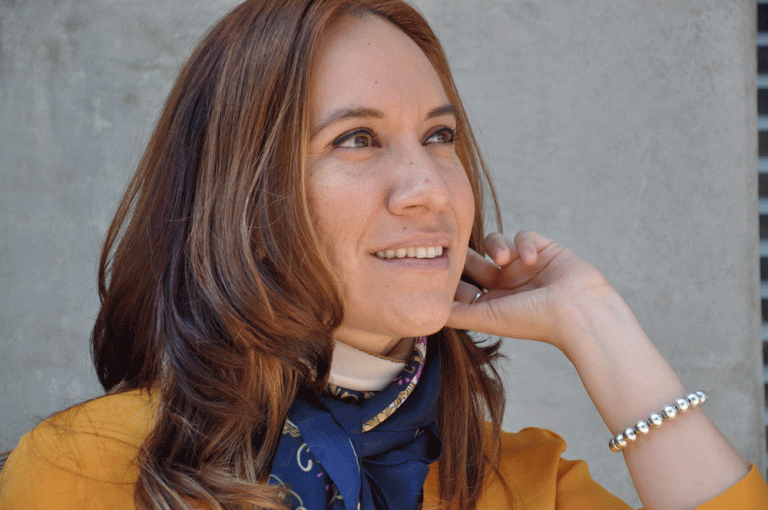
Chelsea Viola
National Beat Reporter
UC Student Regent Marcela Ramirez was on campus last Tuesday afternoon to lead an informational seminar on applying to be the next UC Student Regent and undergraduate advisor, hosted by the External Vice President of Student Affairs Office.
Held in the Student Resource Building Multipurpose Room, Ramirez guided students through the UC Student Regent and undergraduate advisor application process and explained the rigor of the interviewing stages.
There are three student positions available on the UC Board of Regents: the UC Student Regent, the UC Student Regent-designate, and the undergraduate student advisor.
The UC Student Regent has the same acting powers as a UC Regent, such as the ability to vote and to present issues to the Board. The main criteria to be a UC Student Regent—other than good academic standing and no disciplinary record—is to be an enrolled student at a University of California campus, which encompasses both undergraduate and graduate students.
Each Student Regent has a primary issue they advocate for during their one-year term. Last year, UC Student Regent Abraham “Avi” Oved was the driving force for adding the third student seat on the Board of Regents, the undergraduate advisor position.
The UC Student Regent-designate is the student regent who will serve the following year. The Regent-designate attends Board meetings, but cannot vote. The year as a designate is a training opportunity, as Ramirez called it, to grow comfortable in the position and solidify the platform they plan to pursue the next year.
The 2017-2018 year will be the first year that the undergraduate advisor position will be implemented. Oved has previously said that the advisor would offer additional perspectives to the regents.
At the end of the UC Regent informational session, questions from the audience regarding current UC issues were welcomed.
“What was one thing that pleasantly surprised you?” asked Kristin Hsu, the Chief of Staff for the EVPSA Office.
“The Regents don’t agree on everything,” Ramirez frankly admitted. “When we talk about Regents, we talk about it like they are one person, but they disagree so much. They get into it in meetings and into it behind the scenes.”
Ramirez also shared that she was surprised to have her voice heard.
“I didn’t think that would always happen,” Ramirez said. “Sometimes I am heard by people I don’t anticipate. [Superintendent of Public Instruction] Tom Torlakson will come up to me to consult on something, or sometimes it’s UCOP, or I am speaking to the Regents, but there are a lot of community members in the audience who are looking to us to support their particular initiative.”
Her visit to the UCSB campus was part of the ten campus tour split between herself and the Student Regent-designate, UCSB alumnus and current UC Berkeley Law student, Paul Monge-Rodriguez.
Ramirez, a Ph.D. student in higher education administration and policy at UC Riverside, shared her passion for advocating for graduate student funding and support services.
“Graduate students make immense contributions, [we] have the ability to solve climate change problems. Most of the time, masters students and Ph.D students are the ones in the lab trying to solve that. We have undergrads who come on board and get interested.”
In 2016, Ramirez worked with the Government Relations team within the UC Office of the President to secure state funds allotted for graduate education. Ramirez’s collaboration had gained momentum, gaining support from both State House and Assembly, but was crossed out by Governor Brown as a final line item.
“Ultimately, it was his decision,” said Ramirez. “Now we are are trying to see how to continue working with the Senate and assembly and to get into Governor Brown’s ear about graduate education.”
“[Governor Brown] says climate change is really important to him,” Ramirez said, referencing Brown’s State of the State address last Tuesday. “I think the problem he is looking to solve is going to be done by grads.”
Last Thursday, the UC Regents voted to increase tuition by 2.5 percent by a 16-4 vote. Ramirez was one of the four Regents who voted no.
Her criticisms of the tuition vote stemmed from the lack of consultation of the students’ point of view.
“We don’t include student stakeholders in the beginning,” she criticized. Ramirez advocated that the increases should be allocated to the resources that students need most.
“We’ve got to listen to student stories,” Ramirez said. “We’ve got to be there to contextualize, [the Regents] have to spend time with us students. It is not just the role of UCSA and Student Regent and Student Regent-designate. It is a shared responsibility for the Regents to spend time on campuses.”










